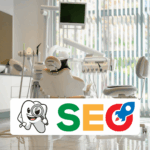Everyone appreciates a healthy smile. While daily brushing and flossing are crucial to any oral care regimen, they’re certainly not the whole story. Professional cleanings help prevent problems like cavities, gum disease, and other oral health complications that daily care routines do not help resolve.
How often should my professional cleanings be scheduled? This, of course, depends on your oral health, lifestyle, and other risk factors.
The General Guideline: Twice a Year
The answer is straightforward for most people: schedule a professional cleaning every six months. The American Dental Association states that cleanings every six months are sufficient to prevent the buildup of plaque and tartar. Although brushing and flossing daily will help, plaque and tartar naturally accumulate over time.
And, please, do not think of these visits merely as a polishing of your smile. During this time, your dentist or hygienist can look for early signs of problems that, left untreated, may develop into cavities, gum overgrowth, and potentially oral cancer.
Why Some People Need Cleanings More (or Less) Often
Oral health cannot be treated with a universal approach, unlike many things in life. While the recommended twice-a-year routine is the baseline standard, some people thrive with fewer visits, while others require more frequent care.
Low Risk Patients
If you have excellent oral hygiene, no history of gum disease, and a low cavity rate, you might only need a cleaning once a year. Home care and one professional visit a year are generally adequate for this category of patients to stay in good condition.
Moderate Risk Patients
If you have some health conditions, experience minor plaque accumulation, and are a little more prone to gum disease, cleaning sessions every 6–9 months would be beneficial to maintaining balance.
High Risk Patients
Some individuals need more professional cleaning sessions every 3–4 months. This group includes, but is not limited to, those suffering from gum disease and diabetes, smokers, individuals with weakened immune systems, and those with a history of ongoing gum problems. The more frequent sessions in this group aim to disrupt the bacterial overgrowth cycle and protect the gums and bone from losing their structural integrity.
How Age Influences Cleaning Frequency
Children and Teens
Children and adolescents experience many structural and functional changes in their dental systems. New, developing, and changing teeth cause a higher risk of cavity formation, especially with the addition of braces and certain food combinations. Having cleanings at intervals of 6 months will encourage healthy habits and prevent the development of more serious issues down the road.
Adults
Most adults are fine with appointments every six months, but some situations require care more often, like dry mouth as a result of some medication, stress, or pregnancy.
Seniors
With age, dry mouth, gum recession, and polypharmacy are some mouth changes that occur and could potentially increase the risk of decay and infection. More elderly clients tend to do best with cleanings three to four times a year.
Why Skipping Cleanings Is Risky
What happens if you skip cleanings or put them off for a while may seem harmless. Tartar accumulates on the gums, and it will not brush off. It will harden and turn into tartar that will require a professional to remove. Untreated tartar will irritate the gums, cause infections, and ultimately destroy the bones supporting the teeth.
Cleanings are vital to attend to if you suffer from gum disease. The professional care will prevent disease progression by controlling the harmful bacteria and protecting you from losing teeth.
What to Expect During a Professional Cleaning
If it has been a while since your last appointment, you may check; it is simple, and often more comfortable than expected. Here’s what you can expect:
- Plaque and tartar removal: Specialized tools remove deposits above and below the gum line.
- Polishing: Teeth polishing smoothens surfaces, minimizes rough edges, and eliminates some surface stains.
- Flossing: Complete flossing aids in the cleaning the gaps between the teeth which are often difficult to access.
- Evaluation: The gums are evaluated for inflammation, and the teeth are checked for abnormalities.
- Personalized Advice: Some specific daily care regimens and techniques may be suggested by dentists and hygienists.
The Role of Lifestyle and Habits
Some habits will increase the need for cleaning more often. These include: smoking, eating and drinking sugary foods and drinks, or stress-related teeth grinding, which all carry a greater risk to oral health.
The practice of consistent brushing and flossing and having a balanced diet will enable you to have longer periods between visits.
This is why having your lifestyle designed cleaning plan is essential. The dentist will design a personalized plan for you after having a review of your habits, oral history, and any specific health conditions.
FAQs About Professional Teeth Cleaning
How often should I schedule a dental hygiene teeth cleaning?
For most people, twice-a-year cleaning is most appropriate. However, if there is a greater risk to one’s oral health,
Is professional cleaning painful?
Not really. Most patients undergo this cleaning process without discomfort. There may be some mild discomfort if cleaning involves removing built-up tartar, but the process is rapid.
Can professional cleanings be substituted with regular brushing?
Brushing, flossing, and all other home care activities are essential, but they cannot eliminate hard tartar. You also need professional tools to clean the areas you cannot reach at home.
What happens when I don’t get cleanings?
Plaque will form tartar, which will irritate the gums, and if left untreated, may cause gum disease, and you may also lose your teeth. Skipping and overlooking appointments only increases this untreated risk.
Do kids really need professional cleans?
Yup. Beginning professional cleaning at a young age is invaluable for cavity prevention, forming professionally supervised oral habits, and allowing the dentist to identify jaw and tooth alignment issues.
Remembering to Maintain a Healthy Smile
At the end of the day, not getting professional cleaning simply to maintain the health of your teeth can negatively influence your self-esteem and may affect your budget. The right schedule varies per individual and self-discipline in regular care is most crucial.
Not sure about the appropriate frequency? Work with your dentist to create a personalized plan. Whether it’s every six months or three, this tailored self-discipline will allow your teeth to maintain their strength and brightness.









